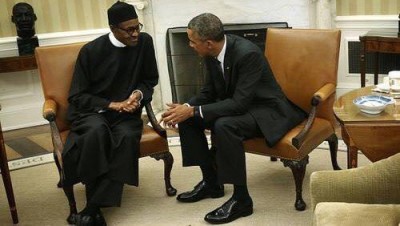
Concerns are growing over the decision of the Nigerian government to purchase 12 A-29 Super Tucano light attack aircraft from the United States.
David Kuranga, an investment and political risk consultant, described the warplanes as “crop dusters” and advised the government against going ahead with the purchase.
Mr. Kuranga, who is the managing director of Kuranga and Associates, in the statement, said the warplanes fall below the standard of aircraft used by even the military of African countries such as Egypt and South Africa.
“In a conventional match-up or joint-task force, if Nigeria were ever asked to partner in a multi-national coalition with middle-income nations like Egypt, South Africa, Brazil, or Indonesia, the Nigerian “Air Force” equipped with the A-29 light attack fighters would be joke!” he wrote in a statement sent to PREMIUM TIMES.
“They are comparatively slow, fly at lower altitudes, and are much more susceptible to anti-aircraft artillery that even rebel fighters in Mali were in possession of,” he wrote.
Mr. Kuranga also said that the warplanes are too expensive even as they are inadequate for serious military operations. He said they would constitute waste of taxpayers’ money.
“The fact that the Nigerian government is considering putting in over a 100 million dollars of state money to purchase these inadequate aircraft, as a means of upgrading Nigeria’s air defenses is a laughable! Further it is a poor investment and a waste of state resources.”
He said he found it baffling that the US authorities were seeking to block the sale of the obsolete warplanes to Nigeria when they should be thankful that the Nigerian government is relieving them of such antiquated aircraft.
He said Nigeria should aim to buy more advance warplanes that will put it at par with other militaries in the continent.
“These more advanced fighters would put the Nigerian Air Force on equal footing with South Africa, Egypt, and other middle income emerging powers. Fighter jets like the Gripen SAAB JAS-39 are among the most cost effective and capable fighter jets in operation today. The new Gripen JAS-39 has a price tag of around 40,000 million a unit, but Saab, desperate for new customers has the option of versions of the aircraft using the frames of the older model, already built and in storage at a much lower price tag.”
Mr. Kuranga also wonders why Nigeria is so fixated on only buying military equipment from the US when it could get same from other countries sans the baggage attached to such purchases.
“There is no rational reason for Nigeria to make the United States its primary supplier of military hardware. Their equipment is pricey, comes with serious strings attached, and what they are willing to sell is by far inferior to what Nigeria can afford to purchase from other sources. Further since, training and maintenance will likely be linked to the source country of the aircraft, the fragile relationship Nigeria now has with the U.S. is not fertile testing ground for this scale of a purchase and partnership. Those advising the president to entertain the offer of the U.S. to sell the A-29 turbo prop “crop duster” plane, are seriously leading the administration down a path that is almost certain to go awry.”
Meanwhile, the New York Times in an editorial has kicked against the proposal to sell the warplane to Nigeria.
In an editorial, published on Wednesday the influential U.S. newspaper wrote that selling the warplanes to Nigeria will be a “mistake” as the President Muhammadu Buhari administration is yet to investigate serious cases of human rights abuses and extrajudicial killings by the Nigerian military, especially in the fight against Boko Haram.
“Nigeria’s government cannot be entrusted with the versatile new warplanes, which can be used for ground attacks as well as reconnaissance. Its security services have long engaged in extrajudicial killings, torture and rape, according to the State Department’s latest annual human rights report,” the paper said.
Quoting a US State Department report, the New York Times wrote that while the Buhari administration has moved to curb graft and investigate some right abuses, the government did not “investigate or punish the majority of cases of police or military abuse” in 2015.
One of such major cases, it wrote, was the wanton massacre of over 300 Shi’ites and the destruction of properties by the army after members of the sect had an argument with the convoy of the Chief of Army Staff, Tukur Buratai, last December.
The leader of the group, Ibraheem Zakzaky and his wife, who were wounded during the army siege on sect’s enclave are still being held without charge in an unknown location, five months after attack.
“That hardly seems like an endorsement for selling the aircraft,” the newspaper said.

No comments:
Post a Comment